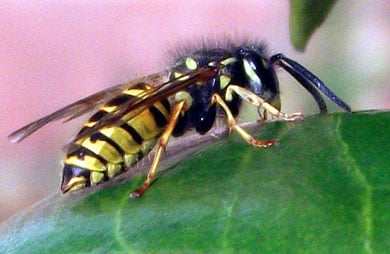

$125 including GST, travel, time, materials & poison
Phone
Approved user of Vespex® "
Iain Robertson | Thistle Bees" on:
09 889 0990 or 020 476 7000
Department of Conservation also uses Vespex®
Yellow Jacket Wasp Environmental impacts
Wasps are a major problem in some beech forests where they consume massive amounts of honeydew. Honeydew is produced by a native scale insect and is an important food for native birds, bats, insects and lizards.
Wasps also eat huge numbers of native insects and have even been seen killing newly hatched birds. By eating so much, they upset the natural food chain of the forest.
Cost-effective wasp control over large areas
- Specifically for the control of Vespula wasp species (yellow jackets). There is no requirement to find the nests, as the wasps gather the bait from Wasptek™ bait stations and carry it back to the nest. The wasps then share the bait around nest-mates, including the queen, quickly destroying the whole colony.
Vespex® is not at all attractive to bees, and is of very low risk to birds, pets and people. The bait does contain an ecotoxin though, and there are some strict stewardship controls in place to ensure that the bait is used in a way that does not present a threat to the environment.










